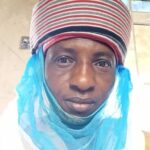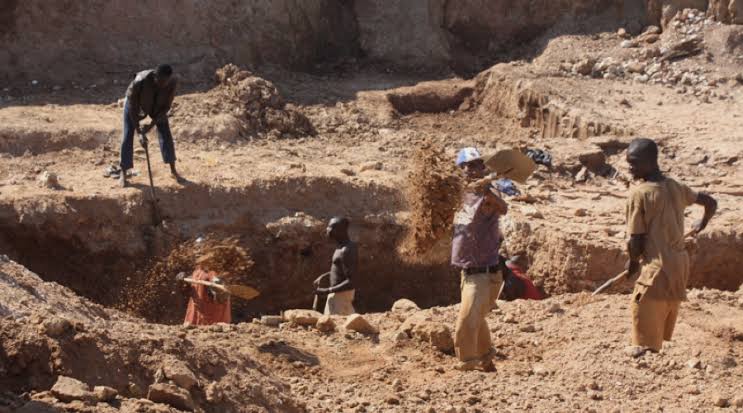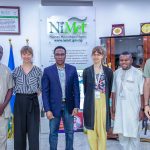As open pits continue to spread in the African continent as a result of large scale lithium mining activities, a coalition of Non Governmental Organizations has commenced campaign for consideration and adequate protection of host communities.
A coalition of civil society organizations, has commenced a coordinated campaign to save mining host communities, against impending dooms usually associated with the underground hollow associated with large scale lithium mining activities, in Africa.
To this end, the Renevlyn Development Initiative (RDI), Community Development Advocacy Foundation (CODAF) and Gaia Africa, organized a virtual press conference with 48 attendees, to emphasize the need to ensure full protection of host communities in all mining deals brokered by government and its agencies.
The African continent is rich in hard rock lithium, which is mined by clearing land, digging enormous open pits and using machinery or tools to extract the ore. The process is water-intensive and can cause terrestrial and aquatic pollution from chemicals used to extract the metal.
Hence, speakers at the event warned that Africa may be on the path of doom if proper measures are not taken to protect the environment and the people within the mining corridor.
Philip Jakpor, the Executive Director, Renevlyn Development Initiative, disclosed that there are proven cases of illegal mining activities going on in Nigeria, recalling four Chinese nationals were arrested in Nasarawa State for illegal mining of lithium few weeks ago.
Jakpor lamented that local community people are often excluded in negotiations between government and the miners and the environment is always turned into a crime scene, with environmental degradation, prostitution, armed intimidation, threat to lives of anyone who oppose the status quo, and child labour becoming rife in such areas.
“My organization has visited one of the communities where lithium and gold are mined in that state and can confidently tell you that local community people are excluded in the engagements between the government and the miners and the environment is a crime scene.
“There are also some unsavory developments also in that community – a growing number of kids are recruited to mine and the girls are becoming sex slaves for the miners.
“In every community and around every community where lithium is mined in Nigeria there are Chinese companies and there is insecurity. Deliberately created insecurity in the mining communities allow the miners get away with their environmental and other crimes.
“The requisite monitoring and oversight are largely missing. And let’s not forget that lithium is driving the renewable energy vision of the world. A metric ton of lithium in the international market is about $100,000 per metric ton, up from about $30,000 a year ago.
The largest lithium importers are China, Japan, South Korea and the United States.
“The Chinese are ahead in the race to grab every lithium mining community in Africa and they respect neither human rights nor environmental sustainability. Rocks are blasted indiscriminately, wastes are discarded indiscriminately, and child labor issues are being documented in their mining sites.
“These incidents in lithium mining communities are reminiscent of oil extraction in the Niger Delta where issues of environmental sustainability are rife and the locals are left out of the governance of what ideally are resources from their own environment and should benefit them. Ogoniland, in Rivers State is a clear example of the oil curse”.
Also speaking, Mr. Tobias Lengs Dapam, RDI board member, also gave a grim description of the situation in Nasarawa saying the activities of miners in one of the remote villages have resulted in increased crime rate, stressing that a lot of young girls have dropped out of school, while younger school age boys are being lured into dangerous mining activities.
Also, in his presentation, Farai Maguwu, the Executive Director, Centre for Natural Resources Governance in Zimbabwe, said the Chinese are dominant in the trade in that Southern Africa country.
He stated that the operators are not only grabbing the lands but also grabbing water, as they continue to drill boreholes for processing of lithium.
Maguwu described the activities of the miners as another form of colonialism because they collude with few local politicians and powerful people to intimidate the villagers, grab their lands and drill boreholes to the detriment of the environment.
“This is the second colonialism” he said.
Kenza Elazkem, North Africa Outreach Coordinator, GAIA Africa said that beyond the issues of poor regulations in Africa, the critical minerals like lithiumare only critical to the Global North which will rather extract them from Global South where regulations are weak.
She revealed that the energy transition model currently being promoted by the Global North will push about 3 million Electronic Vehicles batteries to Africa by 2050 including batteries that will cause public health harzards in Africa. So there will be waste colonialism with EV batteries.
She revealed also that batteries.produced for the Global South are of not of the same standards and quality like those of the Global North.
Because of that she said GAIA is promoting campaigns to refuse products designed for wastes and reduce use of critical minerals among others.
Furthermore, Ubrei Joe Mariere, stated that in as much the essence of a just transition which is changing from the transition from fossil fuels to renewable energy sources is crucial for addressing the climate crisis, there is need to uphold Indigenous Rights and Community Consent.
“Mining for minerals like lithium, cobalt, and copper needed for renewable technologies often occurs on Indigenous lands and in biodiversity hotspots. It is essential to uphold the rights of Indigenous Peoples and local communities, including their right to free, prior, and informed consent (FPIC) as per the UN Declaration on the Rights of Indigenous Peoples”.












